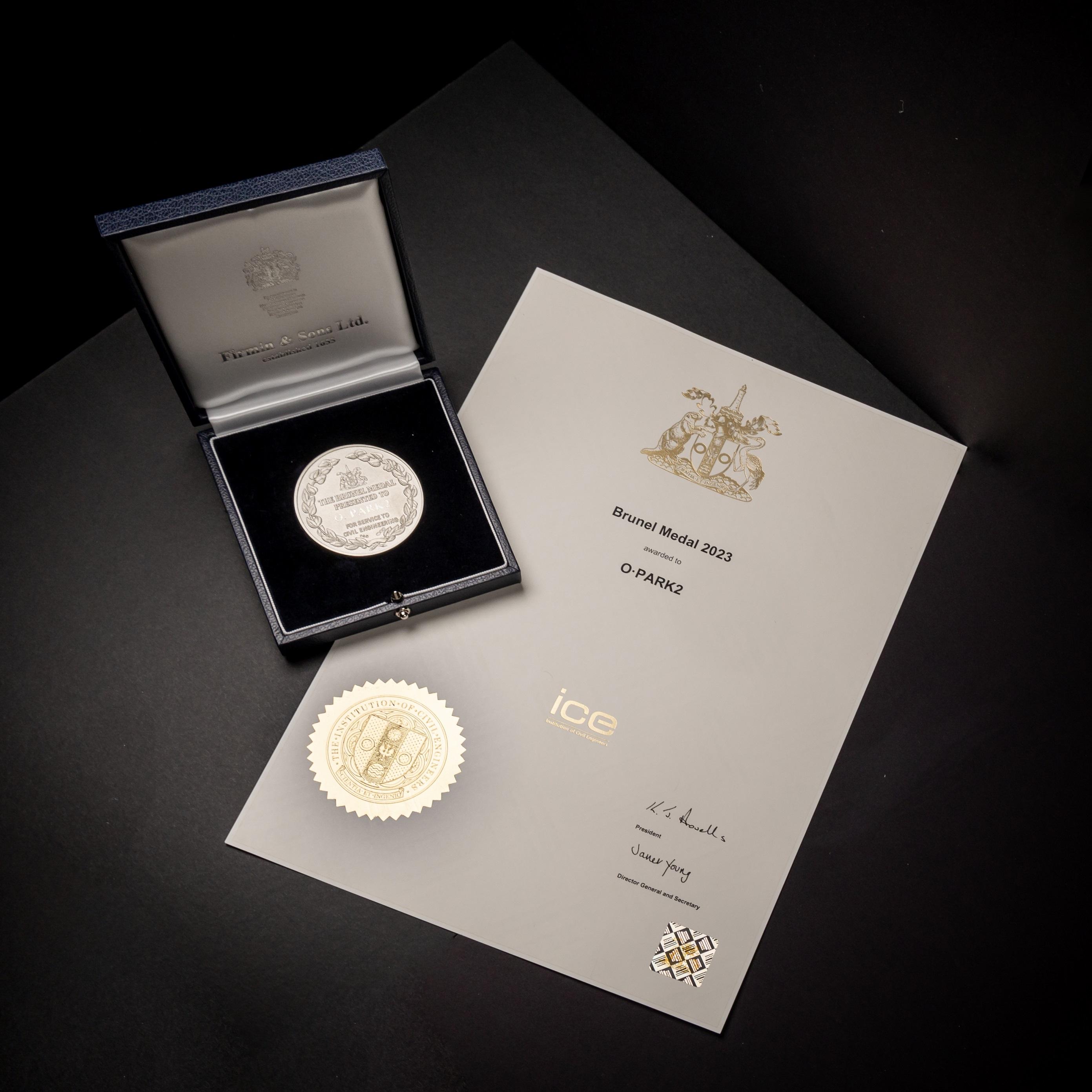Organic Resources Recovery Centre Phase 2 (O · PARK2) wins ICE Awards 2023 Brunel Award (with photos)
​The Organic Resources Recovery Centre Phase 2 (O.PARK2) of the Environmental Protection Department (EPD), which is one of a kind of low-carbon building projects in Hong Kong, has received the Brunel Award from the Institution of Civil Engineers (ICE) in the United Kingdom in 2023.
The Brunel Award recognises civil engineering and infrastructure projects for their accomplishments in carbon reduction. The Director of Environmental Protection, Dr Samuel Chui, said that O.PARK2 offers valuable experience and serves as a model for Hong Kong's low-carbon building projects. He expressed gratitude to the ICE for acknowledging the efforts and achievements of the EPD in promoting and implementing low-carbon building initiatives.
The award presentation ceremony took place in London on October 13, and the Assistant Director (Waste Infrastructure), Mr Michael Lui, attended the event on behalf of the department to receive the award.
In addition to the Brunel Award, O.PARK2 has also received several other accolades. It achieved the highest rating of "Carbon Neutral" in the "Low Carbon Building (Process) Label" by CarbonCare InnoLab in 2021, and won the championship award in the United Nations Industrial Development Organization's Global Call 2022. Moreover, it received the Gold Award in this year's Hong Kong Awards for Environmental Excellence.
O.PARK2 utilises anaerobic digestion technology to convert food waste into electricity and fertiliser, realising the circular transformation of food waste into renewable energy. It is estimated to reduce approximately 67 000 metric tons of greenhouse gas emissions per year. During the construction phase, O.PARK2's contractors have adopted low-carbon construction techniques, including the use of low-carbon building materials such as low-carbon concrete with 60 per cent ground granulated blast furnace slag (GGBS), carbon-captured concrete blocks, low-carbon cement, and 100 per cent recycled low-carbon steel reinforcement. Additionally, it will utilise a Battery Energy Storage System to replace traditional diesel-driven power generation and offset the remaining carbon emissions through carbon credits to achieve carbon neutrality during the project's construction phase.
O.PARK2 will commence operations in 2024 and can handle 300 metric tons of food waste per day. Together with the existing O.PARK1 and the Food Waste/Sewage Sludge Anaerobic Co-digestion Trial Scheme implemented in Tai Po and Sha Tin Sewage Treatment Works, Hong Kong's total food waste recycling capacity is expected to increase to 600 metric tons per day after the completion of O.PARK2.

